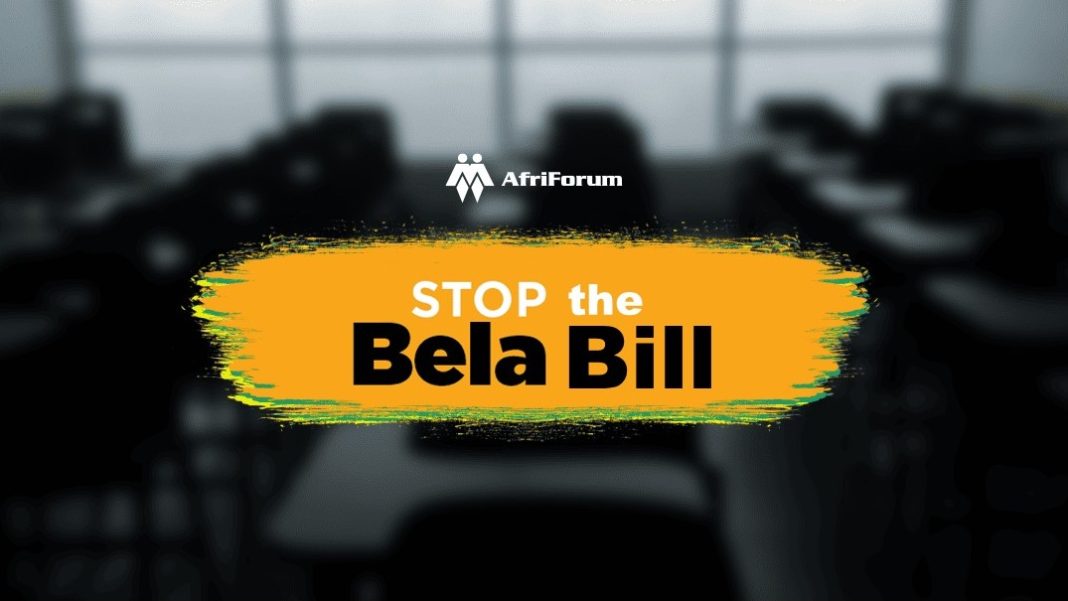By Johnathan Paoli
In what is being labelled as the largest protest of Afrikaans movements since 1994, 41 language, education and cultural organisations will demonstrate against the controversial Basic Education Laws Amendment (Bela) Act in defence of public Afrikaans-medium schools.
Between 5000 and 10,000 people are expected to participate, according to Kallie Kriel, who is the CEO of civil rights group AfriForum, which is one of the organisers of the protest.
“The Bela battle is the biggest battle since the establishment of this organisation,” Kriel told Inside Education.
The march will commence at 9am on Tuesday morning at the Voortrekker Monument and proceed to Freedom Park, where a memorandum will be handed over to a number of Cabinet members, including Agriculture Minister John Steenhuisen, Sports, Arts and Culture Minister Gayton McKenzie and Correctional Services Minister Pieter Groenewald.
The Act has sparked outrage primarily due to its provisions regarding single-medium schools, language and admission policies.
Critics, including Afrikaanse Taalraad chairperson Hendrik Theys, argue that its implementation threatens the viability of Afrikaans as a medium of instruction, potentially leading to the “murdering of a language”.
Kriel reiterated these concerns, highlighting fears that the legislation would effectively anglicise Afrikaans schools within a few years.
Solidarity Movement chairperson Flip Buys framed the protest as a fight for the future of Afrikaans education.
“People have to walk a few kilometres to prevent our children from having to fly away thousands of kilometres,” he said.
The sentiment was echoed by other leaders, including Heindrich Wyngaard from the Cape Forum, who warned that the Act could lead to “language confusion” and negatively impact educational standards, particularly within the Coloured community.
The organisers said their aim was to send a clear message to the Government of National Unity that the “offensive” sections of the Act must not be enforced.
Buys said that the protest would bolster ongoing negotiations with political parties to amend the legislation.
He said the memorandum would articulate the collective demands of the Afrikaans community, including restoring the authority of governing bodies over schools and promoting quality mother-tongue education across all language groups.
Participants in the demonstration were united in their stance that any attack on Afrikaans education was a direct threat to their cultural identity and educational rights, Buys said.
He said organisers hoped that the significant turnout would illustrate the resolve of Afrikaans speakers and their supporters to protect their language and educational rights.
And, that the march was not only a demonstration of dissent against the legislation, but also a broader assertion of the importance of mother-tongue education in South Africa’s diverse linguistic landscape.
The GNU’s clearing house mechanism met last week to discuss the contentious clauses. A small committee of political leaders has been formed to deal with the issue.
It must give a report back next week.
INSIDE EDUCATION










